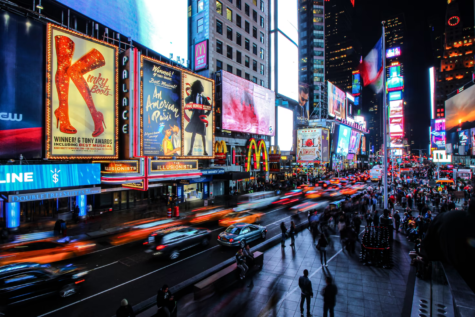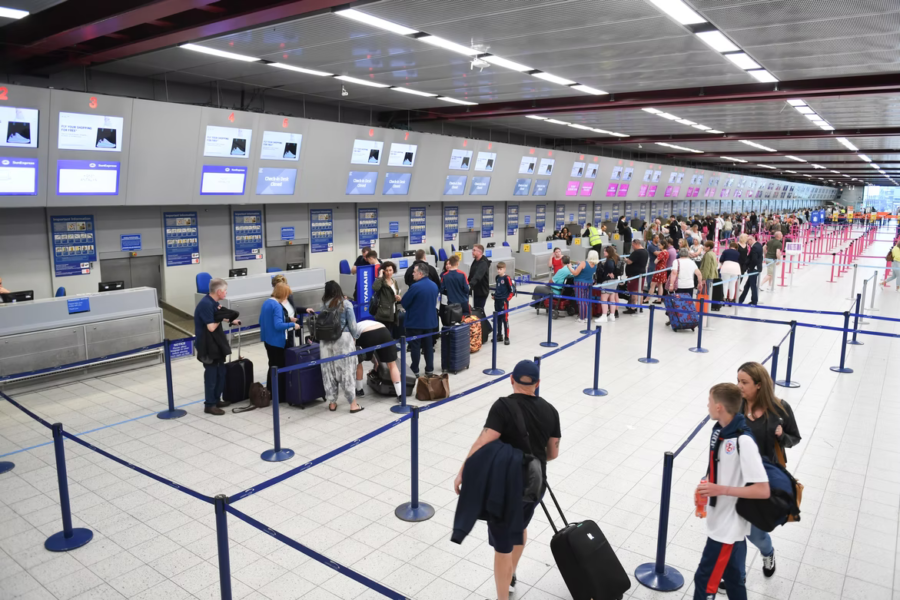The Omicron Variant Probably Upended Your Travel Plans
The uncertainty of the Omicron variant has created new travel restrictions and regulations which has major implications for the travel and tourism industry.
United States airports reached record levels during the Thanksgiving weekend of 2021, falling just short of the peak number of travelers in 2019, prior to the onset of the Coronavirus pandemic.
Perhaps you were hoping for a relaxing ski trip to the Alps, maybe a winter getaway in Spain to soak up the sun, or simply traveling to visit your family. Well, your plans have probably changed thanks to the Omicron variant, the latest variant of concern during the Coronavirus pandemic.
Just as countries were relaxing restrictions and opening borders, the new Omicron variant has disrupted the travel industry’s predicted recovery over the past few months.
In many countries around the world, travel levels were beginning to return to pre-pandemic levels. In the United States alone, 2.3 million people traveled during Thanksgiving weekend 2021, falling just short of 2019’s record number of travelers.
The heightened levels of travel concerned officials who predicted it would cause a massive influx of COVID-19 cases, and they were right.
At the time of this article’s publication, the United States is now averaging over 668,000 new cases a day, the highest rate since the COVID-19 pandemic began in March 2020. While the majority of these cases are from the highly transmissible Omicron variant, the Delta variant also continues to cause infections.
Because the Omiron variant is new, its severity and the effectiveness of vaccines against it is still being studied. This uncertainty has led to increased travel restrictions in many nations.
Omicron and International Travel
As COVID-19 cases worsened in Europe in December 2021, many countries like Ireland and Austria entered strict lockdowns, barring travelers as the holiday season approached.
Other European countries have instituted stricter policies in order to curb the spread of Omicron. The United Kingdom now mandates a PCR test and quarantine for both vaccinated and unvaccinated foreign travelers. The UK and 42 other European countries have instituted travel bans on South Africa and neighboring countries.
This decision has been heavily criticized by South African government officials who cite the colonial undertones of the travel restrictions. The WHO says travel bans are not the answer to the upsurge in cases because Omicron has already spread and banning travel will not curb its spread.
Omicron has become the dominant variant in South Africa and has become the dominant strain in the United States. Fortunately, COVID-19 cases appear to be less severe than those caused by previously dominant variant, Delta.
Despite the optimism surrounding Omicron’s less severe overall impact upon health, sales of airplane tickets have decreased in part due to the increased restrictions and also because safety is a major concern for would-be travelers.
“Personally, I wouldn’t travel right now. There’s so much uncertainty surrounding the Omicron variant. Even without this new variant, I wouldn’t travel, because I have older parents, and I don’t want to risk their health. I think other than essential travel, people should stay home,” said Diana Campbell ’22.
US Travel
On November 8th, 2021, President Biden relaxed international travel restrictions on over 30 countries including the United Kingdom and China for vaccinated foreign travelers, as long as these travelers provided a negative PCR test within three days of traveling.
This new policy was seen as a massive win for the travel industry which lost billions of revenue during the pandemic and subsequently lobbied for relaxed restrictions.
In response to the new Omicron development, Biden announced a travel ban on South Africa, and on December 6th, 2021, Biden implemented a new set of guidelines for all foreign travelers regardless of vaccination status; everyone must provide a negative PCR test no more than 1 day before their flight.
“It was a good idea for Biden to implement these new measures. Even if Omicron might have less severe health effects, the effectiveness of vaccines against this variant are lessened. We need to prioritize public health and safety. Biden should have implemented his PCR testing rule even before Omicron was discovered. Vaccinated people can still contract the virus and spread it to vulnerable populations,” said Elizabeth Lai ’22.
New York City
New York City has always been a Christmas vacation staple with the Rockettes, the Rockefeller tree, and countless other festive activities.
During the travel booking peak back in November 2021, the top destination for travelers was New York City. Officials expected a massive rejuvenation for New York’s tourism industry, which was hit especially hard by the pandemic. Over the past two years of the pandemic, typical tourist hotspots and hotels were deserted and billions of dollars were lost.
Former Mayor DeBlasio launched a six million dollar ad campaign with British Airways at the beginning of November 2021 to drive up tourism, during his last months in office. The expected boost in tourism was expected to increase sales for large retailers and small businesses alike. However, as Omicron continued to spread, many travelers canceled their tickets.
New York City’s dominant strand is now Omicron and long lines have been common at PCR testing sites during the months of December 2021 and January 2022.

As a result, many productions on Broadway and the performances of the Rockettes, staple tourist attractions of New York City, had to close. Many restaurants have also closed amidst safety concerns or because many of their workers are home quarantining with COVID-19. The traditional New Year’s Eve celebration was also been scaled down.
As Omicron continues to drive a surge in cases in the United States, it is important to evaluate your travel plans as circumstances change. Booking travel insurance is a recommended tip right now, as many flight and hotel bookings are being canceled daily.
“Personally, I wouldn’t travel right now. There’s so much uncertainty surrounding the Omicron variant. Even without this new variant, I wouldn’t travel, because I have older parents, and I don’t want to risk their health. I think other than essential travel, people should stay home,” said Diana Campbell ’22.
Carolyn Chui is an Editor-in-Chief for ‘The Science Survey.’ She enjoys writing articles on politics, business, and international relations. Carolyn...

